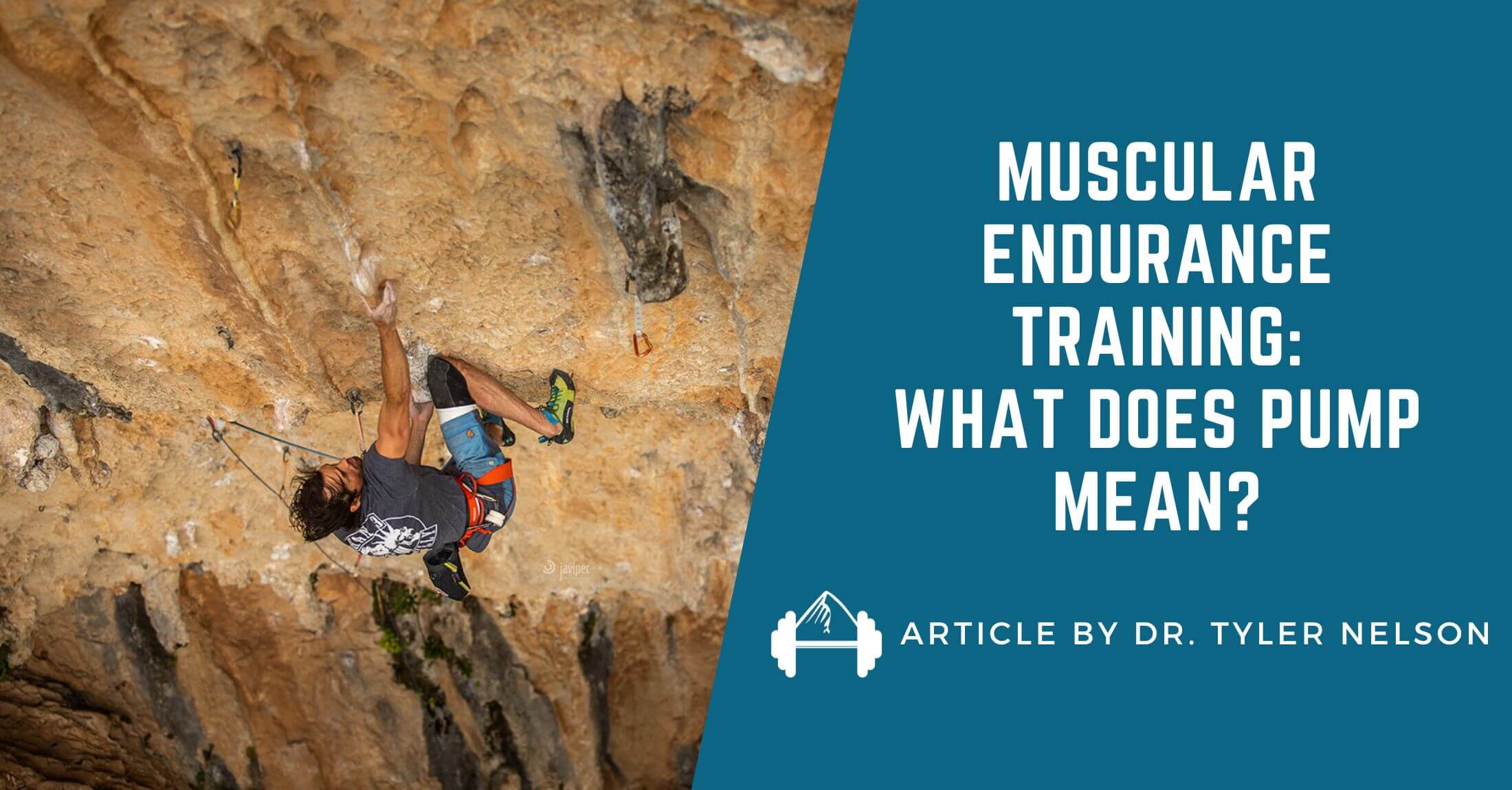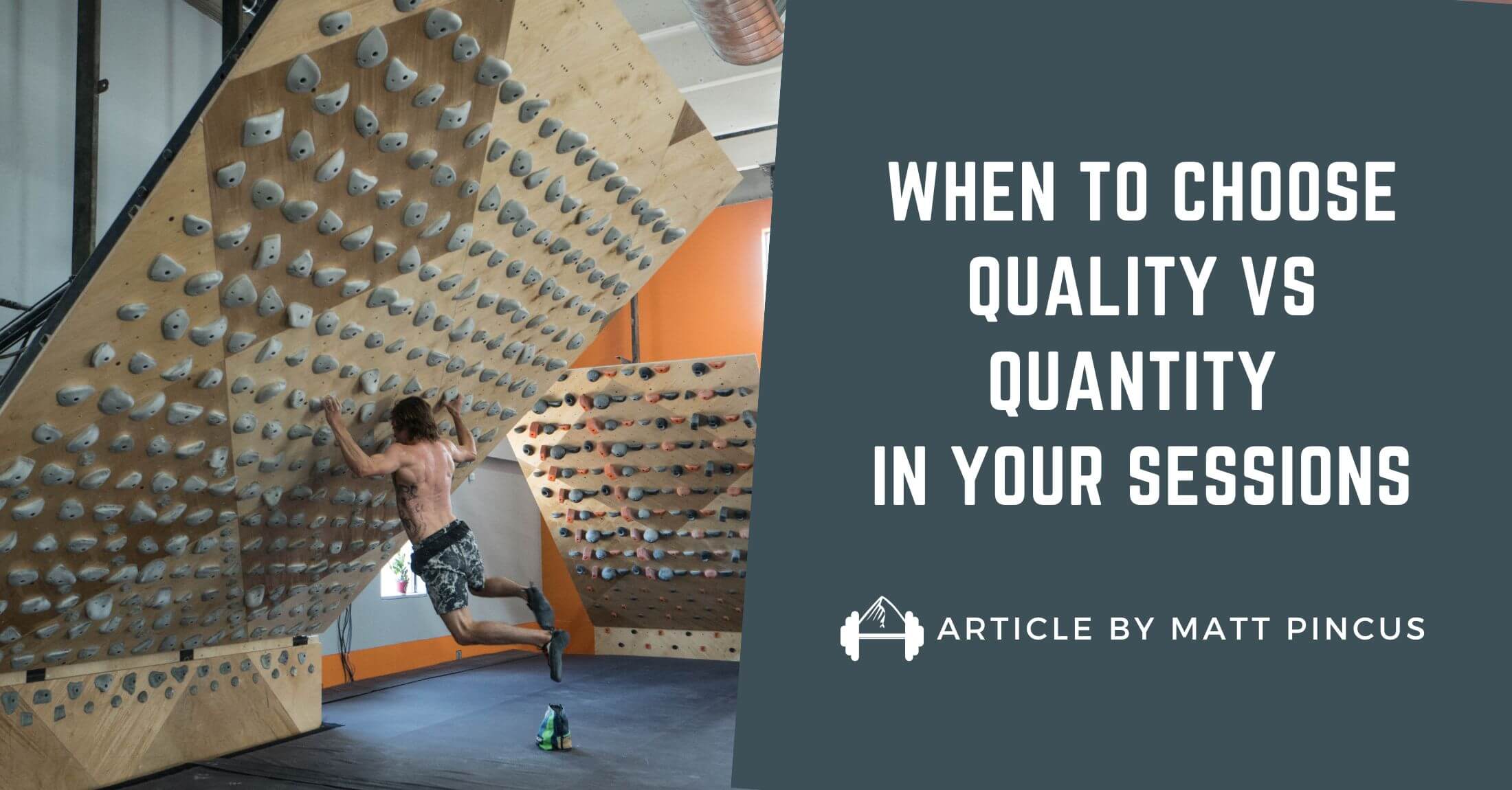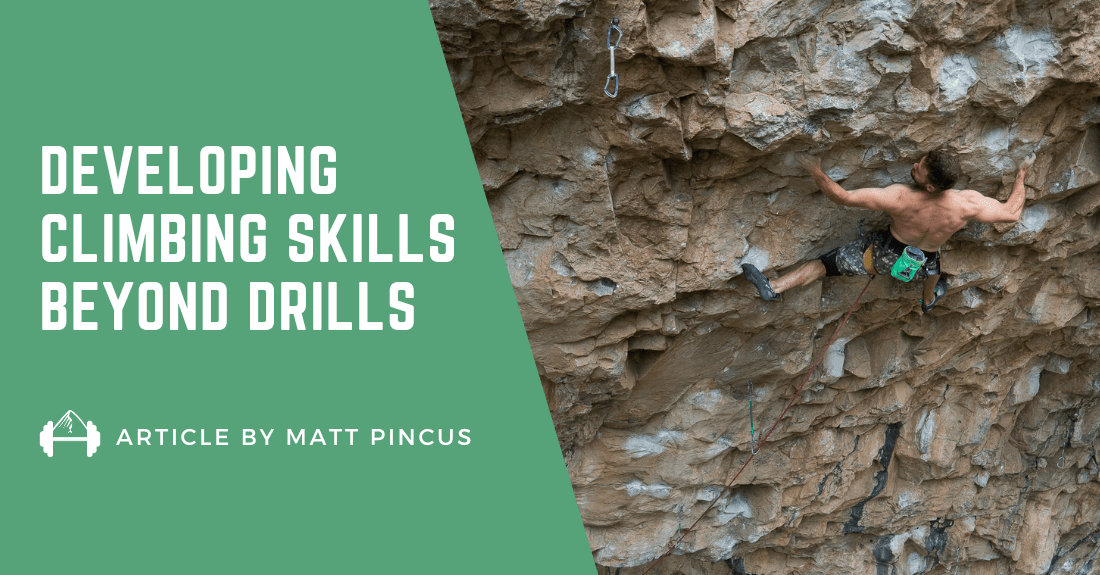Note: We recently created a training program in response to the COVID-19 pandemic, all about how to train at home with minimal equipment. We hope it helps you stay motivated and strong! Learn more about the program.
For those of you who prefer to read rather than listen, today we have a new excerpt from the transcript of Episode 146: Matt Pincus on How to Train at Home During COVID-19. You can find the entire transcript and audio on the episode page. In the episode, Matt and Neely discuss the article he wrote for TrainingBeta on at-home training for climbing during COVID-19 and what you can be doing to train at home right now.
Whether you were in the midst of a training cycle and forced to abandon it because you lost access to equipment, or you just finished a training cycle and felt ready to send, or maybe you were already outside sending–the idea of training at home inside can be less than inspiring after letting your outdoor climbing goals go.
This raises many discouraged questions: What’s the point? What do you do? Can you really train effectively and stay strong at home? What about endurance? How do route climbers maintain the level of endurance they’ve worked hard to build?
In this excerpt from the podcast episdoe, Matt explains:
- What we can do right now to maintain what we have gained through training
- What two things we should be focusing on doing at home
- Why obsessing over the idea of perfection does more harm than it does good
If you’re interested in more guidance on how to train at home, check out our new COVID-19 At-Home Training eBook.

Matt Pincus on How to Train at Home During COVID-19: Excerpt
30:50
Neely Quinn: So now we’re going to talk about how to train at home and what to do. Matt wrote a really good article, in my opinion, on TrainingBeta the other day about what you can do, some sample workouts, how to think about it, and why you would be doing these specific things. I’m going to let you take over from here.
Matt Pincus: I think the main point that I wanted to get across in that article is that we need to abandon the idea of following any kind of perfect training program in our current situation. Saying that the Coronavirus isn’t a perfect situation is obviously a dramatic understatement. To think that your training program, while we’re all collectively dealing with that, is just going to be perfect and is all going to work out exactly how you want is sort of unrealistic. We just spent a lot of time outlining all these ways that we’re sort of making do with what we have and maybe building a home wall or whatever.
We should just move past this idea of perfect and instead focus on doing something, really anything, with what you have. That is going to be better than doing nothing. That seems really obvious but I think motivationally, that’s a really important point. It’s really easy to be like, ‘Well, why bother? I’m not hangboarding in the perfect way. Why bother doing a kettlebell workout? I don’t have a kettlebell that is the right size. I don’t have dumbbells that are heavy enough for me to really train strength,’ or anything like that. Those things might be true but you’re still going to be better off doing something rather than nothing. It’s kind of: be creative, be consistent with it, and just do what you can because that’s going to help you. You’re going to lose less ground and kind of bridge the gap to when we’re through this better if we’re doing something.
Neely Quinn: Right. Something. Anything.
Matt Pincus: Really anything, yeah.
Neely Quinn: It’s really tempting right now to sit on the couch and watch Netflix. It’s so stressful. Even if your workouts are really short, anything is good.
Matt Pincus: Exactly, and you can think about that from the perspective of when you first started climbing. Pick whatever grade you had to work hard to get to, initially. For argument’s sake let’s just say it was 5.11. You put in a bunch of work to get to 5.11 or V4 or any grade. It took a while to get there and you really had to be consistent with your climbing but then maybe life took over for a second and you didn’t climb as much for a little while. When you circled back and got back to climbing you probably weren’t right back at that level but to get back to there took a lot less effort than it took to get there the first time. The same is true with our training.
To get really strong fingers takes a lot of time but once you’ve had strong fingers, with a layoff from it you might not be at your max finger strength you once had but it’s going to be easier to get back to where you were at having been there before, with less work.
The more we can do right now to just maintain, as much as possible, our current level the less we’re going to lose and the easier it’s going to be to get back to it once things return to normal.
Do you want to move on to what my suggestions were for what we should be focusing on? If we know that ‘do something’ is the main thing.
Neely Quinn: I think that’s a good preface to all of this and I think people want to know what they can do.
Matt Pincus: I think the two obvious things are training your fingers and doing some kind of general strength training. This is sort of assuming you don’t have access to a home wall. If you have access to a home wall and you can keep training as you were normally then you should continue doing what you’re doing, kind of like what I’m doing. There’s no reason to reinvent the wheel just because you don’t have a climbing gym right now.
So hangboarding for finger strength and then general strength training.
49:57
Neely Quinn: One question I want to answer preemptively is: if I’m a route climber in general and I’m prepping to go back for routes, how is that different than if I were a boulderer prepping to go back to boulders? What do you have to say to that?
Matt Pincus: I honestly don’t really think there’s much of a difference, if any. I know that kind of sounds crazy. There are ways to train endurance and power endurance on the hangboard but again, like I said before, the hangboard is just a tool. It’s just a strength training tool and the good news is, within climbing, strength is sort of the foundational physical attribute. Everything else kind of starts with strength. Power we can talk about as strength being applied with speed. We can talk about power endurance and endurance as sort of strength expressed over time.
If you’re not strong enough you’re not going to be able to do the move, right? In a time like this, even if you’re trying to get back to route season, it’s never a bad time to get stronger. I think if you keep that the focus, and that’s sort of what I default to, then it really looks the same for sport climbers as for boulderers.
Neely Quinn: And if you think about it, I did an interview with Adam Ondra and he was like, ‘Look. It doesn’t matter if I’m training for routes, World Cups, or bouldering because the stronger I am the more endurance I’m going to have.’ If you think about it like that then basically, max hangs are always going to help you and repeaters are going to make you stronger either way. I don’t know, it’s neither here nor there, right?
Matt Pincus: Yeah, I think so. Obsessing over what is going to be better for a route climber versus a boulderer on the hangboard is kind of like not seeing the forest for the trees. Pick a protocol that works for you and your space, that is appropriate for you and your training history, and stick with it. You’re going to come out better on the other side of it. Let’s move past the idea of something being perfect.
The only other thing I’ll add here is I’m sure there are route climbers right now who are dismissing this answer and saying, “Yeah, sure. I won’t have any endurance when I get back.” Remember that endurance and power endurance are sort of more transient adaptations, right? They come and go much more easily. Yeah, you might lose some endurance and whenever you are able to get back outside it might take a handful of days to sort of rebuild that but it’s going to come back quickly. That’s okay.
Strength takes a long time to build but it’s really persistent. Once you have it you’re not going to lose it as much. Focus on building strength now and when we can get back to climbing you’ll get your endurance back more quickly than you think and you’ll be better off for the strength work that you did now.
Full Episode/Transcript: TBP 146: Matt Pincus on Home Training During COVID-19

Other Articles You Might Like:
- 4 Ways to Stay Motivated While Training at Home
- Top 12 At-Home Training Resources on TrainingBeta
- Home Training Equipment Recommendations
- TBP 147 :: Steve Bechtel, Kris Hampton, Tom Randall on Best Practices for Training at Home
- TRX Workouts for Climbers





Leave A Comment